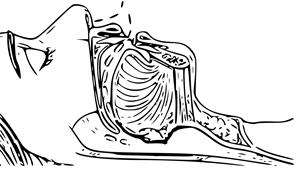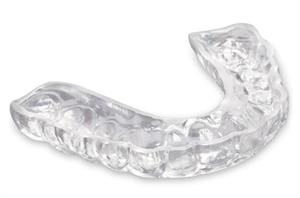Snoring can not only cause sleep disruption, but it also impacts the overall health of those who snore. Many have asked why overweight people are more prone to snoring, as research has demonstrated a significant association between obesity and this type of noise disorder. Understanding how these two factors link together is essential for achieving better restful nights and general wellbeing.
Key Takeaways
-
Excess weight, particularly around the neck and abdomen, directly contributes to snoring and obstructive sleep apnea by compressing the upper airway and reducing lung capacity, with higher risks associated with a neck circumference exceeding 16 inches.
-
Snoring linked with obesity presents significant health risks, including cardiovascular complications, metabolic syndrome, and cognitive and emotional issues, with an almost double prevalence of sleep apnea among obese individuals compared to those of normal weight.
-
Effective strategies to reduce snoring in overweight individuals include a combination of weight loss through diet and exercise, the use of snoring remedies like CPAP devices and oral appliances, and improving sleep hygiene with consistent sleep schedules, a conducive sleep environment, and relaxation techniques.
Obesity and Snoring: Understanding the Connection

Excess weight, specifically around the neck or midsection, can result in restricted breathing and snoring when lying down. This is a major cause of obstructive sleep apnea (OSA). It’s not only about physical health, but it affects your quality of sleep as well. High blood pressure also adds to being at risk for OSA due to its connection with obesity-related issues such as excess fat accumulation around the abdomen and extra strain on airway muscles resulting from excessive bodyweight that narrows them significantly during sleeping hours. Weight gain does more than just change how you look. It has an adverse impact on deep sleeps too, which means both your partner’s rest could be disturbed too because no one wants to hear loud snoring!
The Role of Neck Fat
One may be curious about how neck fat can contribute to snoring. It does so by causing constriction of the upper airway when a person is in a supine position, due to excess accumulation of fatty tissue surrounding their pharyngeal cavity. This results in reduced airflow during breathing and increased chances for sleep apnea or snoring issues at night. If applicable, specialized treatment could assist those with large amounts of adipose deposits on the neck area as measurements above sixteen inches indicate considerable risks related to sleeping problems such as apneas or loud sounds while dozing off.
It should also be noted that dropping weight around one’s throat circumference would help them get better rest without any disruptions since it has been found out there is a strong correlation between size here and either form mentioned earlier -snoreapnea.
Abdominal Fat and Indirect Compression
It has been proven by scientific research that abdominal fat can have an impact on snoring. This occurs indirectly as the elevated fat levels decrease lung capacity and subsequently put pressure on the upper airway, making it difficult to breathe properly, which worsens any kind of sleep-disordered breathing – such as apnea or just plain old snoring.
Consequently, reducing belly fat is a big step forward for improving sleep quality because it lessens these disordered breathings causes alongside neck fats influence over them too.
Gender Differences in Fat Distribution
The difference in fat distribution between men and women can significantly affect the rate of snoring. Male central obesity is a contributing factor, which can lead to an increase in this type of breathing disorder. On the other hand, until they go through menopause, females usually store their weight peripherally. When gaining mass centrally, it may result in more severe or frequent instances of snoring being reported. Studies have found that males tend to put on additional pounds around abdomen, torso and neck region than women who carry them lower down, potentially causing higher occurrence rates among males over females.
Health Risks Associated with Obesity and Snoring

Snoring and obesity don’t just cause irritation, but serious health risks as well. These include metabolic syndrome, cardiac complications, mental or emotional problems related to sleep deprivation caused by obstructive sleep apnea. It is estimated that about 80% of people who snore also suffer from this condition in which they experience regular interruptions while breathing during their sleeping hours.
We can state that snoring isn’t a mere nuisance. It has significant implications for our wellbeing and requires urgent attention! One needs to be aware of the threats posed by obese weight gain and loud nighttime noises such as snores linked with life-threatening illnesses like obstructed sleep apnea so preventive measures are taken before damage is done beyond repair due to physical & mental health impairment resulting from such conditions.
Cardiovascular Complications
Snoring and sleep apnea can have wide-reaching effects in the body, possibly resulting in cardiovascular problems. Each time someone has an interruption to their sleep due to these conditions, oxygen levels drop causing heart rate or blood pressure to increase - making those affected at risk of ailments such as atherosclerosis, stroke, hypertension and even a heart attack. The correlation between obesity and obstructive sleep apnoea syndrome (OSAS) is also significant. It almost doubles for patients with OSAS who are obese or severely overweight according to BMI figures. Snoring/sleep disturbances should not be taken lightly if one hopes maintain optimal health down the line.
Metabolic Syndrome and Diabetes
The effects of obesity and snoring reach far beyond just cardiovascular health. It can also impact metabolism. Excess weight, coupled with the disordered breathing associated with snoring, leads to sleeplessness which in turn disrupts metabolic processes increasing a person’s chances for developing conditions such as type 2 diabetes or metabolic syndrome.
Sleep deprivation related to noisy noises during sleep causes insulin sensitivity decreases and increases resistance – two factors that contribute heavily to negative changes in glucose control dynamics. Managing one’s weight and treating bothersome snores is an essential step towards keeping these kinds of diseases at bay.
Cognitive and Emotional Effects
Sleep deprivation and snoring have a detrimental impact on more than just physical health, with disturbances in quality of sleep causing learning problems in children and depressive symptoms among adults. With proper practices to manage sleeping issues as well as these breathing concerns, we are able to create an environment that can optimise cognitive capabilities while promoting emotional balance. Research has revealed how inadequate rest along with the sounds of snoring disrupt thinking abilities, memory retention capacity along with concentration levels. For those looking to sustain healthy living, it is essential they get good quality sleep, which can only be achieved by understanding one’s own needs around this area. Reinforced through effective prevention techniques against related conditions like snoring disorders.
Breaking the Cycle: Weight Loss Strategies for Reducing Snoring

In order to solve the problems that come with snoring and obesity, a plan of action is required. This requires combining several weight-loss approaches – including dietary modification, physical activity and expert assistance, in an attempt to break free from this revolving issue.
If you are curious about what those strategies may be? Let’s take a look at each one separately.
Diet Modifications
Weight loss and lessening snoring volume go hand in hand. To achieve this, dietary changes must be implemented to facilitate the weight decrease process - such as transitioning into a low-carb or early dinner routine. Nutrition is key here: it isn’t simply about decreasing intake, but about making healthier food decisions too like avoiding fatty elements including red meat, chicken/ poultry products, pork dishes and some dairy goods plus sugary snacks/drinks that might heighten obesity levels, which eventually could lead to loud snoring.
So essentially with attention on dieting comes better control of one’s bodyweight, which helps reduce possible instances of heightened noise when sleeping soundly at night!
Exercise and Physical Activity
For improved sleep, weight loss and overall health, it is important to engage in regular exercise. Particular forms of physical activity such as throat exercises can be especially beneficial for decreasing the severity of snoring and its associated disorder – sleep apnea. All types of movement are advantageous when trying to shed pounds or improve breathing during restful periods.
Consulting Medical Professionals
For successful weight loss, diet and exercise are imperative. Before beginning any regimen to reduce body mass, consulting a doctor or nutritionist is essential in order to create an individualized plan that suits your specific health concerns. A medical professional can provide advice, encouragement, and help evaluate progress through the process of losing weight. They have expertise for implementing plans which take into account pre-existing conditions so the program meets all special needs accordingly.
Snoring Remedies for Overweight Individuals

For overweight individuals looking for relief from snoring, there are various treatments available. These include oral devices, positional therapy and Continuous Positive Airway Pressure (CPAP) units. All of these have the potential to reduce or prevent snoring in people with extra weight issues.
When it comes to tackling both their excess weight problems as well as addressing troublesome snores at night, one should consider exploring all options that can potentially help reduce those disruptive noises while sleeping due to a high body mass index.
Oral Appliances
Oral appliances are designed to open the airway during sleep in order to reduce snoring and obstructive events. These devices, which fit inside one’s mouth, keep the tongue from falling back into the throat so that breathing can occur without disruption or noise. Although there may be some side effects such as drooling, temporary jaw discomfort and irritation of oral tissues due to dryness, they tend not only to be mild but controllable through risk factors awareness associated with wearing these items while sleeping. Toothache is also a potential consequence. Yet hypersalivation could still occasionally take place when using this kind of appliance for an extended period of time.
Positional Therapy
Positional therapy is a method of reducing snoring that focuses on changing the sleeping position. By avoiding laying flat on your back, one can prevent the tongue and soft tissues in their throat from blocking airflow when they are asleep. This helps to decrease snoring significantly.
Various tools like items placed between you and your mattress or vibrating alarms set off by changes in body position may be used together with positional therapy for Effectiveness against loud night breathing.
Continuous Positive Airway Pressure (CPAP)
CPAP devices are proven to be successful in treating sleep apnea and decreasing the snoring of overweight persons. Through continually supplying pressurized air into their respiratory pathways, it helps them stay open, preventing any blocks or obstructions. This approach can improve sleep quality for those who struggle with weight-related loud night breathing under medical supervision.
Sleep Hygiene Tips for Better Rest

Having good sleep habits is a necessary tactic in dealing with both snoring and obesity. It entails forming regular patterns of sleeping, keeping the environment conducive for restful slumber, as well as adding relaxation tactics to your daily routine.
These aspects of sound hygiene require attention. Establishing consistent schedules when it comes to bedtimes helps create strong routines for efficient resting periods. Ensuring that you maintain peaceful conditions (such as reducing noise) while lying down enhances your chances of getting deep restorative slumber, important components in fighting off excess weight gain and noisy breathing disturbances throughout the night!
Establishing a Consistent Sleep Schedule
Having a predictable sleep schedule and adhering to the same times for going to bed as well as waking up will help regulate your body’s natural internal clock which can result in better quality of sleep. Not only that, maintaining such routine might also lead to improved metabolic functions, more favorable sleeping/eating patterns while decreasing chances of being overweight or gaining weight.
Creating a Sleep-Friendly Environment
Having good sleep hygiene means creating a space for rest that is conducive to relaxation. Keeping your bedroom dim, tranquil and cozy are essential components of this environment. Temperature regulation and lowering levels of noise should also be taken into account when striving towards better quality sleep - the optimal temperature range being between 60-68°F (15-20°C). Reducing sound in the sleeping quarters can reduce snoring while improving overall sleep quality.
Relaxation Techniques
Practicing relaxation techniques on a daily basis can help improve sleep quality and reduce snoring, which are often related to breathing disorders while sleeping. Such as deep breaths, yoga or meditation may support calming the body and mind making it much easier for you to both drift off and stay asleep through the night.
Deep breath exercises are especially beneficial. They involve inhaling in your nose for four seconds then holding that breath inside of you 7 seconds before finally exhaling via your mouth over 8 second intervals repeated multiple times until completed.
Summary
The relationship between snoring and weight can have a huge impact on the quality of one’s sleep as well as their overall wellbeing. Finding methods to break this cycle such as modifications in diet, physical activity and use of sleeping aids are vital steps towards achieving better restfulness each night. Positive results may be observed regarding an individual’s health once actions taken begin to show progress.
Weight loss is key for those struggling with obesity or loud snores. There are other strategies available which will aid successful changes occur while striving for optimal sleep: practicing good sleep hygiene being among them, plus usage of specific remedies suited specifically targeting pesky noises from your lungs during the hours meant exclusively for peace and restful nights.
Frequently Asked Questions
How do you stop a fat person from snoring?
For overweight or obese individuals, losing weight is essential to minimize snoring and help improve their health overall. Weight loss can have a significant effect in diminishing the problem as well as increasing general wellbeing.
Will losing weight help me stop snoring?
For most people, dropping weight can be beneficial in cutting down the amount of snoring. It might not always work. Snorers who are heavy should strive to lose some extra pounds along with other approaches for maximum effect on their nightly noise levels.
Why do skinny guys snore?
Thin males may experience snoring from various factors such as a narrowed airway, requiring more suction to draw in breath. Or alternatively due to anatomical irregularities like having an undersized jaw and shallow midface. Allergies and blocked nasal passages can also contribute greatly to the issue of snoring among men who are thin.
Will losing weight stop sleep apnea?
Losing weight is a significant way to decrease the intensity of sleep apnea. While it may not get rid of all symptoms, a reduction in weight by 10-15% can lead to as much as half improvement in OSA. This demonstrates how successful diet and lifestyle changes related to losing fat mass are for improving an individual’s quality of sleep.
How do oral appliances work to reduce snoring?
Oral appliances help to keep airways clear during sleep, stopping the tongue and throat tissues from collapsing, which results in a reduction of snoring.


